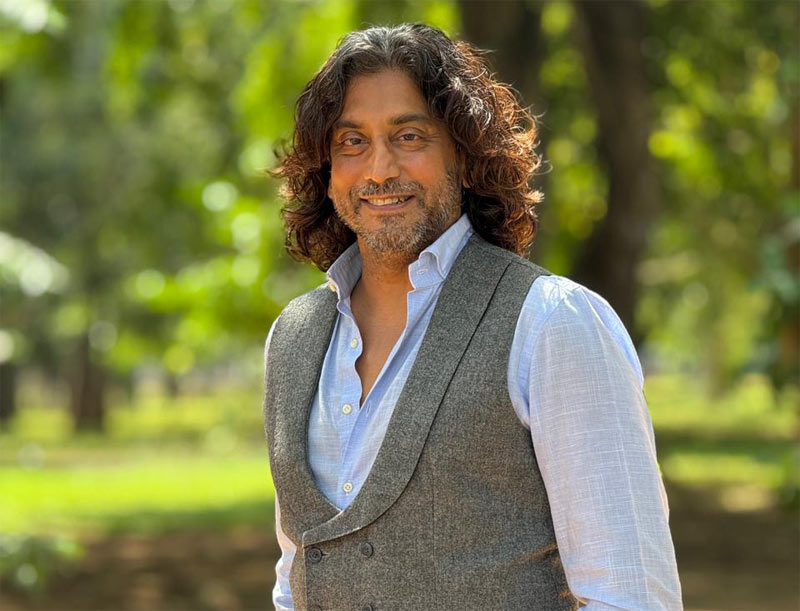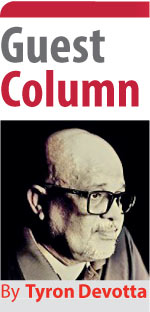Monday Feb 23, 2026
Monday Feb 23, 2026
Thursday, 6 February 2025 04:18 - - {{hitsCtrl.values.hits}}

Galle Festivals Director Damita Nikapota
 Since its inception in 2007, the Galle Literary Festival (GLF) has become a cornerstone of Sri Lanka’s English language cultural events and a beacon for literary enthusiasts. What began as a post-tsunami initiative to revive tourism in the southern regions of the island has blossomed into an internationally recognised affair, drawing authors, intellectuals, readers and interested participants from across the globe.
Since its inception in 2007, the Galle Literary Festival (GLF) has become a cornerstone of Sri Lanka’s English language cultural events and a beacon for literary enthusiasts. What began as a post-tsunami initiative to revive tourism in the southern regions of the island has blossomed into an internationally recognised affair, drawing authors, intellectuals, readers and interested participants from across the globe.
The festival was founded by Geoffrey Dobbs, who recognised both the need for cultural interactions of this magnitude in Sri Lanka and the potential it had to attract international attention. A preliminary promotion in the UK in 2005, helped build anticipation and visibility for the festival, before its inaugural launch took place in Galle. By 2008 just a year after its beginning, GLF had firmly established itself, attracting acclaimed authors and creating an intimate yet dynamic environment that resonated with attendees and sponsors alike.
Building a global brand
GLF Galle Festivals Director Damita Nikapota told the Daily FT that over the years, GLF has evolved from a niche literary gathering into a multifaceted brand. Its success lies in the unique blend of high-quality programing, the Galle Fort’s historical surroundings, and the festival’s ability to cultivate meaningful interactions between authors and audiences. The festival’s intimacy is a defining feature that has become a major draw for both participants and visitors.
“People like the format, the intimacy, and the setting. Authors enjoy the close interaction with readers, and sponsors are attracted by the consistent quality and international recognition the event brings,” says Nikapota.
GLF’s success has also spurred the development of related events, expanding the festival’s cultural reach. Gourmet Galle, for instance, brings renowned chefs from around the world to host masterclasses and culinary experiences, while the Art Trail offers an immersive journey through visual art installations. These offshoots have allowed the festival to embrace a multidisciplinary approach, aligning with the founder Dobbs’ original vision of turning GLF into a cultural movement akin to the Edinburgh Festival.
A catalyst for cultural growth
Beyond the festivities, Nikapota says, GLF plays a pivotal role in reshaping perceptions of Sri Lanka on the global stage. It serves as a platform to rebrand the country, offering an alternative narrative to the conflict and crises that have marred the country’s recent history. “During the war, after the war, and following the 2019 bombings, Sri Lanka was often seen as a troubled zone,” he explains. “But events like GLF show a different side — one that showcases our resilience, creativity, and cultural vibrancy.”
The festival also contributes to the local economy by driving tourism and inspiring other cultural events across the island. “We’re not interested in owning the cultural space,” the Galle Festivals Director emphasised. “Our goal is to expand the pie so everyone benefits, encouraging year-round cultural activities that enhance Sri Lanka’s global appeal. And we encourage others to take the opportunity to leverage on the GLF initiative to extend cultural engagement and interaction across the island.”
Navigating growth and challenges
While GLF has achieved remarkable success, it continues to face challenges, particularly in balancing growth with maintaining the festival’s unique atmosphere. The event’s limited scale, due to the space constraints of Galle Fort, has kept it exclusive, but this in turn limits ticket sales and financial sustainability.
Tickets, which account for only 30% of the festival’s total costs, are priced as affordably as possible, despite the high costs of flying in authors, accommodations, and event logistics. The remaining funding comes from a mix of sponsorships and in-kind contributions from local businesses, particularly hotels and service providers. However, there is a constant need for more sponsorship to ensure the festival’s continued growth without compromising its essence.
“The demand is there — we could sell more tickets and festival passes, but scaling up has risks, like losing the intimacy people love about the festival. It’s a delicate balance,” Nikapota adds.
Expanding horizons: Future of GLF and its broader impact
GLF is more than just an annual event; it’s a symbol of Sri Lanka’s cultural renaissance. With plans to potentially expand into multilingual programing and additional events throughout the year, the festival continues to evolve. Its commitment to fostering a vibrant cultural ecosystem, both locally and internationally, ensures that GLF remains a cornerstone of Sri Lanka’s artistic identity.
Asked about the Galle Literary Festival’s status as a non-profit, Nikapota explains, “It isn’t officially registered as a non-profit. The festival operates as a guarantee company, which means there are no shareholders and no dividends are distributed. Any surplus generated from the event is reinvested into the festival for the following year. This structure ensures that the festival remains focused on its cultural mission rather than profit generation.”
The Galle Festivals Director says in 2009, they considered pivoting the festival to include the film industry, leveraging Sri Lanka’s rich history and scenic beauty to create an international platform. “We did a test in 2008, to see how people would respond if we screened a film as part of a test festival, bringing in directors and cast. The response was overwhelmingly positive. However, scaling this concept proved costly, and the idea was shelved — for a time. Now, the conversation is shifting back toward film. There’s a renewed interest in creating a skills exchange, which will bring filmmakers and cast members to interact with local industry professionals. The goal is to position Sri Lanka as a hub for South Asian cinema,” Nikapota says.
“If you think about it, we are sitting next to India, the world’s largest film industry. We should be taking advantage of that,” he adds, drawing comparisons to Canada, which benefits tremendously from US film production, contributing billions to its economy. “We’d love to see something similar here, but it requires government cooperation and support.”
Looking at the organisation of the festival, it’s clear that a finely tuned structure has evolved over the years. At the top is the Festival Director, who oversees the entire event’s logistics and execution. This year, that role is filled by Giselle Harding, who also directed last year’s festival. Harding isn’t just an event manager; she runs a successful bookshop in Galle and possesses a deep knowledge and love for literature. Her international experience — having organised events in Europe, the UAE, and Saudi Arabia — brings a level of expertise crucial for the festival’s continued growth, Nikapota says.
Alongside Harding, the curator plays a key role in shaping the festival’s content. Previous curators include Shyam Selvadurai and Jim McDonald, and the current curator is Saskia Walker, a British expatriate who has lived in Sri Lanka for several years. Her understanding of literature, coupled with her awareness of contemporary topics, helps create a diverse and engaging program.
It is worth noting that while some of the festival’s founders and directors are expatriates, local talent has always played a significant role. Figures like Amrita Pieris, Sunila Gallapatti, and Ameena Hussein have been instrumental in directing and curating past festivals. The GLF thrives on this blend of international perspective and local insight.
Damita Nikapota says the concept of soft power often comes up in discussions about the festival’s broader impact. “Soft power refers to the ability of culture to influence international perceptions and relationships, often more effectively than direct political or military interventions. One of the reasons for America’s global dominance is its soft power. Movies, music, clothing — these things shape how people view the US, more than its military might,” he says, adding that Galle’s festivals contribute to Sri Lanka’s soft power by reshaping how people perceive the country. Rather than being seen solely through the lens of beaches, elephants, or even political strife, Sri Lanka becomes associated with intellectual engagement and cultural sophistication.
This shift in perception extends beyond the attendees. While around 5,000 people attended last year’s festival, many more came simply to experience the atmosphere. “There are people who come to Galle during the festival but never attend a single session,” he noted. “They’re here for the vibe, the chance to network, maybe even discuss business on the sidelines.” This spontaneous exchange of ideas, even outside official sessions, is one of the festival’s most valuable outcomes.
Looking ahead, the vision for the festival is both ambitious and grounded. There are plans to expand sub-festivals, such as those focusing on film or art, and to incorporate more sessions in local and vernacular languages. “While we do not intend scaling up to the point where we lose the close-knit dynamic of the festival that authors and attendees cherish, we wish to make it more accessible while still maintaining its intimacy,” he says.
Ultimately, the goal is to create an ecosystem of festivals that feed into one another, energising the cultural landscape of Sri Lanka, the Galle Festivals Director says. “In the next 10 years, we’ll see the full benefit of this festival network — not just in terms of cultural enrichment but in how it contributes to the economy, tourism, and international perception of our country.”